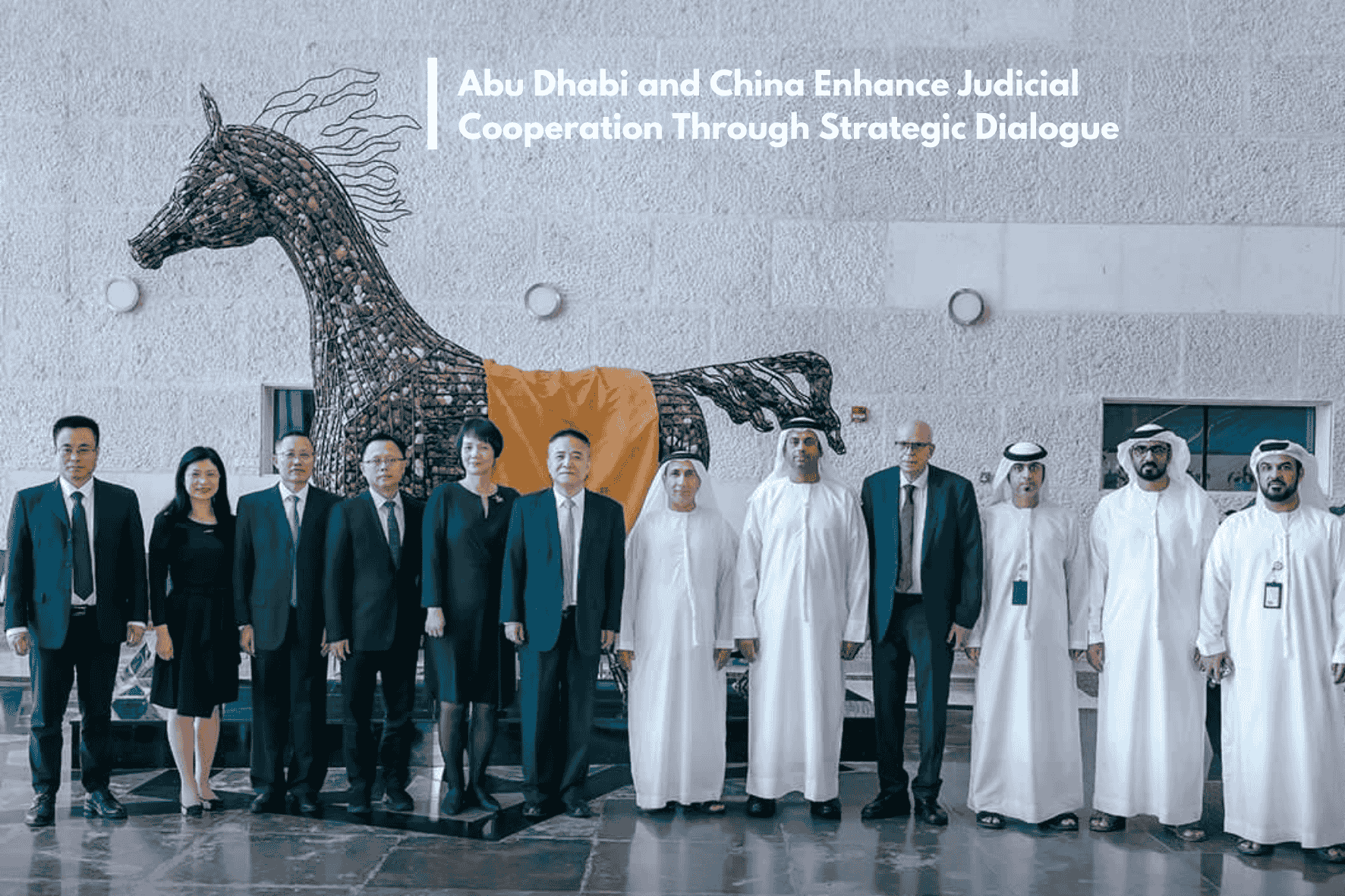UAE Urges India and Pakistan to Prevent Escalating Regional Conflict

A Call for Peace Amid Rising South Asian Tensions
South Asia, a region of vast potential and deep historical ties, once again finds itself on the edge of uncertainty. Amid growing tensions between two nuclear-armed neighbors—India and Pakistan—the world is watching with concern. In a critical diplomatic intervention, the United Arab Emirates has stepped forward to advocate for restraint, dialogue, and peaceful conflict resolution.
H.H. Sheikh Abdullah bin Zayed Al Nahyan, Deputy Prime Minister and Minister of Foreign Affairs of the UAE, has issued a public statement urging both countries to avoid any actions that could escalate hostilities. His message comes at a time when the delicate balance of power in South Asia is being tested. With global peace potentially at stake, the UAE is reinforcing its long-standing policy of promoting diplomacy and regional stability.
This comprehensive analysis explores the UAE’s diplomatic outreach, its strategic interest in South Asian peace, the historical India-Pakistan conflict, and the implications for global stability and humanitarian well-being.
UAE’s Diplomatic Message: A Plea for Restraint and Engagement
In a decisive appeal, H.H. Sheikh Abdullah bin Zayed Al Nahyan urged both India and Pakistan to show mutual restraint and avoid actions that could lead to military confrontation. The message emphasized the urgency of reducing tensions and focusing on constructive dialogue.
The UAE’s leadership called attention to the importance of listening to global voices advocating for peace. The goal: to prevent a dangerous escalation and instead lay the groundwork for mutual understanding, cooperation, and regional security. The UAE stressed that only through diplomatic engagement and open channels of communication can lasting peace be achieved in the subcontinent.
This message aligns with the UAE’s global reputation as a neutral mediator, often taking the lead in peacebuilding and conflict prevention. It further affirms the UAE’s commitment to encouraging diplomatic solutions to international crises, especially those that pose regional and global risks.
India and Pakistan: A Fragile Relationship at a Crossroads
Since gaining independence in 1947, India and Pakistan have had a relationship defined by rivalry, border disputes, and three full-scale wars. The core flashpoint remains the contested region of Jammu and Kashmir, over which both nations claim sovereignty. The ongoing mistrust has led to frequent military standoffs, ceasefire violations, and diplomatic breakdowns.
In recent months, the situation has once again grown tense. Accusations from both sides, cross-border incidents, and inflammatory political rhetoric have contributed to the rise in hostilities. With communication channels largely inactive, the possibility of misinterpretation or unintentional conflict looms large.
The nuclear capabilities of both nations only add to the gravity of the situation. The slightest provocation could lead to devastating consequences—not just for India and Pakistan, but for the entire South Asian region and beyond.
The UAE’s Role in South Asian Diplomacy
The United Arab Emirates has steadily grown into a global diplomatic player, and its foreign policy is deeply rooted in promoting peace, economic development, and international cooperation. As a close partner of both India and Pakistan, the UAE occupies a uniquely influential position.
India is one of the UAE’s largest trade partners, with significant investment and a large expatriate workforce contributing to the Emirati economy. Meanwhile, the UAE and Pakistan share a longstanding relationship based on cultural, religious, and strategic ties.
This dual relationship allows the UAE to serve as a neutral ground for dialogue. Sheikh Abdullah’s call is not simply a formal gesture—it reflects a carefully considered foreign policy that leverages diplomatic capital for conflict resolution.
By positioning itself as a bridge between two adversaries, the UAE reinforces its status as a responsible regional power and peace advocate.
International Reactions: A Unified Call for Peace
The UAE’s appeal joins a wider chorus of international concern. Global institutions such as the United Nations, along with major powers like the United States, Russia, and China, have consistently urged India and Pakistan to resolve disputes through peaceful means.
However, the UAE’s diplomatic style and balanced approach grant it a unique voice in the global arena. It avoids taking sides while pushing for long-term peace—an approach that allows both India and Pakistan to consider its counsel without defensive posturing.
In echoing the concerns of the broader international community, the UAE’s statement adds pressure on both sides to pursue restraint and diplomacy over confrontation.
Humanitarian Impact of Escalation: A Major Concern
In his message, Sheikh Abdullah bin Zayed Al Nahyan didn’t just focus on political tensions. He made it clear that the real cost of conflict is human suffering. The humanitarian consequences of an escalated India-Pakistan conflict could be catastrophic.
South Asia is densely populated, and its people already face socio-economic challenges. A military conflict would likely displace thousands, cripple economies, and cause irreversible damage to public infrastructure. These cascading effects would hinder development, fuel poverty, and potentially destabilize neighboring countries.
The UAE’s foreign policy emphasizes minimizing humanitarian crises. Sheikh Abdullah’s remarks reinforce the need to safeguard human lives by choosing diplomacy over violence, negotiation over military action.
South Asia’s Global Importance: Why Peace Matters Worldwide
Beyond regional implications, stability in South Asia is vital to global peace and economic health. Home to nearly two billion people, the region represents a massive market, a vital hub for global trade, and a strategic security focal point.
India, a rising economic and technological power, and Pakistan, a key player in global defense and diplomacy, both command international attention. Any conflict between them can ripple across global financial markets, disrupt supply chains, and impact international relations.
The UAE’s intervention, therefore, is not limited to a regional concern. It reflects the understanding that South Asian peace is a pillar of broader global security. By advocating for calm and communication, the UAE is helping protect a region critical to international stability.
UAE’s Experience in Peacebuilding and Mediation
The United Arab Emirates is no stranger to mediation and international peacebuilding efforts. From supporting peace agreements in Africa to promoting stabilization in the Middle East, the UAE has taken an active role in fostering global harmony.
In South Asia, this experience becomes particularly valuable. Though the UAE has not officially acted as a mediator between India and Pakistan, its consistent efforts in backchannel diplomacy and regional engagement suggest readiness to assist if invited by both parties.
This strategy of quiet, behind-the-scenes diplomacy has worked effectively in other contexts and could pave the way for renewed communication between New Delhi and Islamabad.
Reimagining South Asia: From Conflict to Cooperation
A core theme in Sheikh Abdullah’s message is the need for a new vision for South Asia—one built on collaboration, not conflict. While historical grievances cannot be erased overnight, progress can be made through small, consistent steps toward mutual understanding and shared prosperity.
The UAE advocates for a South Asia where countries engage in joint economic projects, support cross-border cultural exchanges, and prioritize people’s welfare over military dominance. This shift in mindset is not just desirable—it is essential for long-term regional peace.
As the world watches, the UAE encourages India and Pakistan to become architects of a new era—one defined not by borders and bullets, but by cooperation and coexistence.







